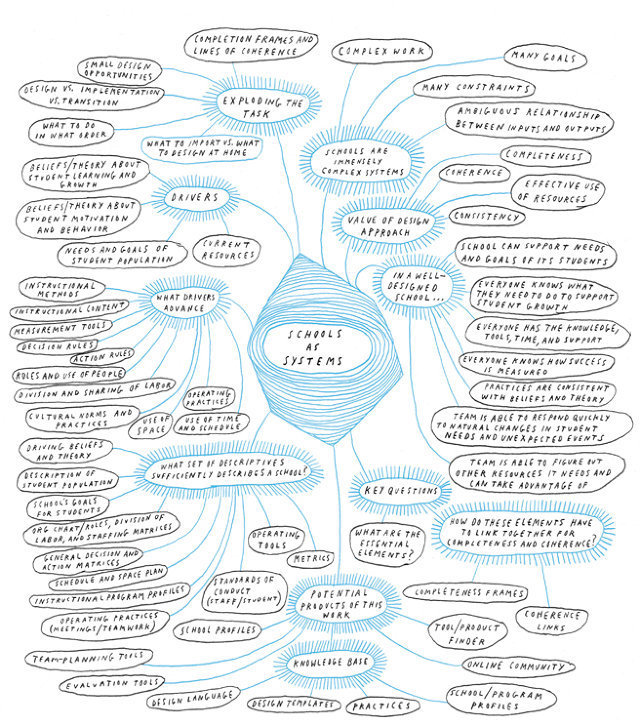To Make Your Lists More Productive, Make Them Way Weirder | Fast Company
Jonathon Youshaei stashed this in Productivity
Stashed in: Creativity, Productivity, Awesome, Venn!, Psychology!
I need to exercise this tip and give it free play:
We don't think linearly, so why do we place our lists along a line? if we want to think fluidly, why do we make our lists rigid? Schott has another idea:
Start in the center of a page and write items in spatial relation to one another, so that you create clouds of related tasks; draw a Venn diagram for party invitees so you can note how people will interact. During the 18th century, sailors in the British navy would sign petitions of grievance in a circle so that ringleaders could not be identified. (From this, the term "round robin" is derived.)
The cool kids--folks that talk about "design thinking"--refer to such freeflowing thought as mind-mapping. It's a clever way to work around the tyranny of the straight line. As designer and Most Creative Person Greg Gunn told us, a mindmap lets you get "a lot of different ideas in play at once [and] you can get the ideas out quickly and figure out the structure and connections as you go." So by plopping down the theme in the middle of the page, you allow the associated ideas to assemble around that mental rallying point--and you might see connections that would have otherwise laid latent.
Gunn's account of what a school day looks like is full of such interconnections:

I am mesmerized by that diagram. What does it mean?
The main lesson here:
Put reconsidering your list at the top of your to-do list.
But don't necessarily make that list a straight line.
That's a good one.
Hat tip: Real Simple
Why sevens are important:
As you may expect from a guy who had a vocabulary blog for the Times, Schott exemplifies linguistic precision. A list of seven, we learn from him, is a heptad. And history is rife with them, he notes: You got your seven sins, seven virtues, Seven Seals,seven ages of man, seven seas, seven continents, seven days of the week, seven digits in your phone number.
Why all the sevens? Because, as a formative psychology paper by George Miller found, people best recall things when they're arranged in sets of seven (or so). And why's that? Scientists are finding that's the number our neurons really dig.
Lesson: If you want to remember your list, stick to a seven.
I love this:
While Umberto Eco might have been right when he said that the list allows us to make infinity comprehensible, we still can't quite comprehend why we keep using lists in the same exact way: written in a line from the upper left corner and partly crossed out by the end of the day.
So how can we make our lists more effective? We've already dug into how (rightly applied) technology can leverage your listing. What we need, then, is a list-tip that's a tad more novel, a touch more weird.
A lesson on how to make our lists more novel: STOP, COLLABORATE, and LISTEN.
If a problem shared is a problem halved, a list collaborated on is a list enhanced.
So when making your list, think "Ice Ice Baby".
So in other words, are we to examine and reconsider that our mental organizing of daily life with factory line task processing accuracy really isn't a productive way to get things done or check off what needs to get done at all...
.
That it's far better for us to group and multi-task activities and seemingly get things done all willy-nilly?











7:57 AM Oct 29 2013